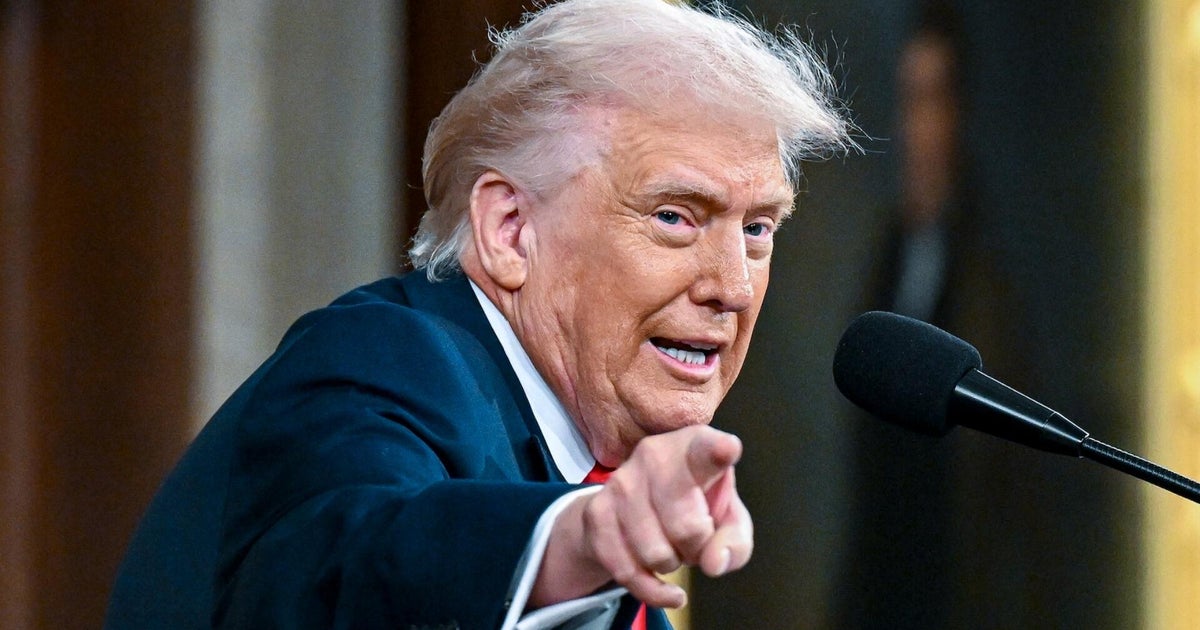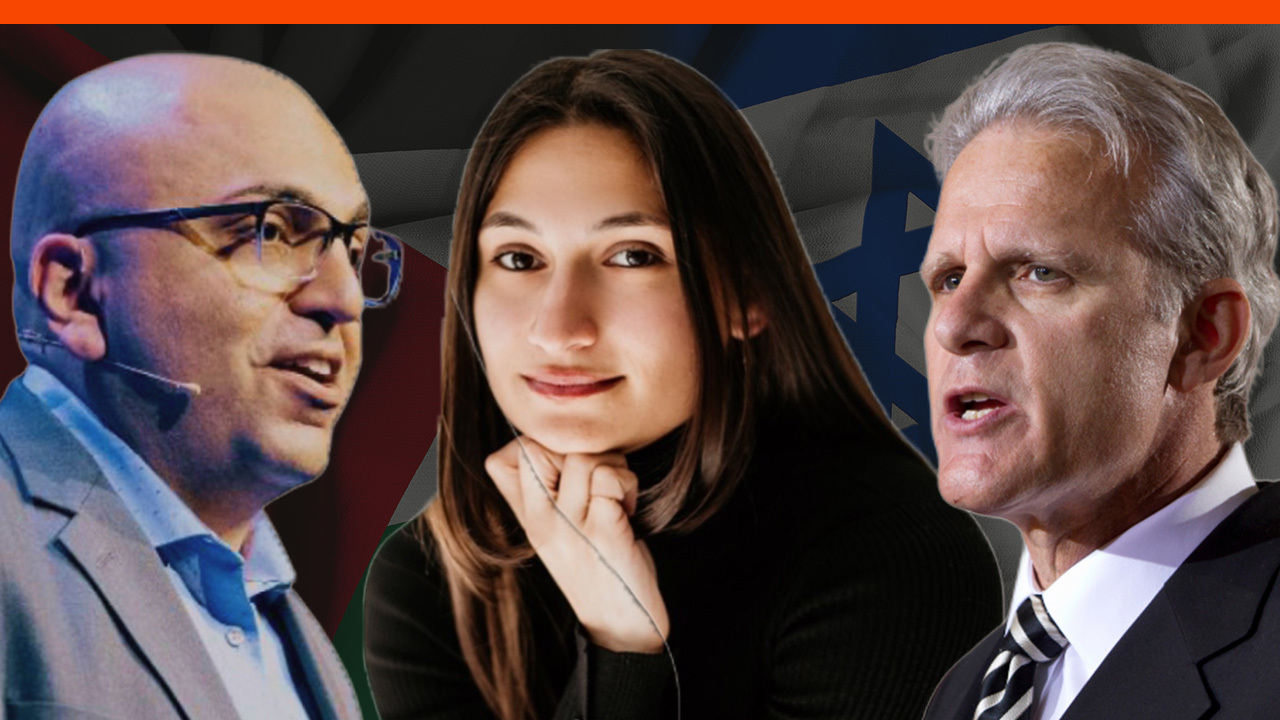Haley urges support for Mideast peace plan in closing Security Council remarks
United Nations — In what were likely her final remarks to the U.N. Security Council on the Israeli-Palestinian conflict, outgoing U.S. Ambassador Nikki Haley previewed the Trump administration's still-unseen peace plan on Tuesday, urging member nations to support the proposal once it's unveiled.
"Unlike previous attempts at addressing this conflict, this plan is not just a few pages, containing unspecific and unimaginative guidelines. It is much longer. It contains much more thoughtful detail," said Haley, who is leaving her post in the new year. "It brings new elements to the discussion, taking advantage of the new world of technology that we live in. It recognizes the realities on the ground in the Middle East have changed — and changed in very powerful and important ways."
But details of the plan, set to be unveiled in early 2019 by President Trump's son-in-law and senior adviser Jared Kushner and White House Middle East envoy Jason Greenblatt, remain elusive. Haley said she had read the plan but offered no specifics, saying that the plan "embraces the reality that things can be done today that were previously unthinkable." Senior U.S., Israeli and U.N. officials contacted said they were not aware of the technological advances Haley alluded to.
"Ambassador Haley focused on the main point when she said [U.N. meetings on Israel] are 'counterproductive' and that the Palestinians should return to direct negotiations," Israeli Ambassador Danny Danon told CBS News after the meeting.
Where does the Middle East peace process stand now?
Haley's comments came after a sobering assessment of the Middle East peace process by Nickolay Mladenov, the U.N.'s Special Coordinator for the Middle East Peace Process, who opened Tuesday's meeting by offering the U.N.'s view of the elements of a "deteriorating situation."
Mladenov listed Israel's "continued military occupation of Palestinian territory," as well as "uncertainties about the future of the peace process and the two-state solution." He cited Hamas' militant activity and reduced donor support for the Palestinian territories as contributors to the stall in peace efforts.
The U.N. envoy gave a grim picture of what he called a "dangerous escalation" in terrorist attacks and an "alarming rise" in incidents that have led to deaths of both Israeli and Palestinian civilians.
Mladenov said several issues have yet to be resolved, citing "settlement activity in the occupied Palestinian territory, including East Jerusalem" and violence against both Israeli and Palestinian civilians. He cited the destruction by Hamas rockets fired into Israel and the lack of an intra-Palestinian agreement, drawing the conclusion that the risk of an explosion in violence in the West Bank has grown.
Where do European countries stand?
Standing together before the meeting, the current and incoming European nations on the 15-member Security Council — France, the Netherlands, Poland, Sweden, Britain, Belgium, Germany and Italy — spoke with one voice, saying the U.N. framework for peace needed to be supported.
"The EU is truly convinced that the achievement of a two-state solution based on the 1967 borders with Jerusalem as the capital of both States, that meets Israeli and Palestinian security needs and Palestinian aspirations for statehood and sovereignty, ends the occupation and resolves all final status issues ... is the only viable and realistic way to end the conflict and achieve just and lasting peace," a joint statement read.
Perhaps because Haley is leaving at the end of the month, several European ambassadors summarized how peace efforts at the U.N. have failed in the past.
"When Sweden joined the U.N. Security Council, there was a moment of hope for Middle East peace. Today, it is with heavy hearts that we conclude that hopes are evaporating, with no peace process in sight," Sweden's Ambassador Olof B. Skoog lamented. "The two-state solution is rapidly moving beyond our reach."
Russia's role in the Middle East has also diminished with the inaction of the "Middle East Quartet," a negotiating team made up of the U.S., the EU, Russia and the U.N.
Vladimir Safronkov, Russia's deputy permanent representative to the U.N., told the Security Council the Quartet "remains the only unique mediation format approved by the Security Council resolutions. The proposal to hold a summit in Russia between the leaders of Palestine and Israel remains relevant."
"Misunderstanding and mistrust between Palestinians and Israelis becomes a constant," the Russian envoy said.
What is the U.S. proposing?
Details of the U.S. plan have been scant, but Danon, the Israeli ambassador, told a small group of reporters last month that the U.S. is working to bring Egypt, Jordan and Saudi Arabia into the peace effort.
Haley's swan song on the Middle East was in effect a plea to Security Council members to recognize nefarious forces sowing conflict in the region: Iran's illegal weapons transfers and destabilizing support for terrorism throughout the region.
"I have spoken about the barbarism of the Assad regime in Syria. I have spoken about Hamas' illegal and diabolical use of human shields," she said.
In the end, Haley appeared to hold out some hope, imploring Council members to heed the Trump administration's forthcoming peace plan, which has been stalled in the wake of the U.S. recognition of Jerusalem as Israel's capital and the opening of the new U.S. embassy there in May.
Haley noted she has made a point of trying to turn the tide of what the Trump administration considers anti-Israeli bias at the U.N. during her time as ambassador. One of her final efforts failed earlier this month when the U.S. lost a procedural vote on a General Assembly resolution that condemned Hamas as a terrorist organization and called for "just, lasting and comprehensive peace between Israelis and Palestinians."
Palestinian reaction
After Tuesday's meeting, the Palestinian Authority's Ambassador to the U.N. Riyad Mansour called the White House plan "dead on arrival."
He was stinging in his criticism of Haley: "She refused to listen to these positions that she heard for the last two years, and she left without listening to them, insisting that a replacement of a global consensus with something that is so vague we do not know, will succeed."
"It is wrong. It will not succeed," Mansour said. "The only thing that has a chance of success is to implement the global consensus" — referring to Security Council resolutions on the status of Jerusalem, a two-state solution and settlement activity.
Mansour also announced that Palestinian President Mahmoud Abbas will be at the U.N. in mid-January to accept the role as head of the Group of 77 developing countries, or G77, which constitute a significant voting block in the U.N. General Assembly.
Where does the peace process go from here?
On Tuesday, Haley remained notably defiant, challenging her fellow diplomats to rise to the occasion when they are presented with the White House plan.
"Every country or party will have an important choice to make," she said.
"They can focus on the parts of the plan they dislike," she said, but if countries reject the White House proposal "because it does not satisfy all of your demands, then we would return to the failed status quo of the last fifty years with no prospects for change."
"It is time we faced a hard truth," Haley said. "Both sides would benefit greatly from a peace agreement, but the Palestinians would benefit more, and the Israelis would risk more."



